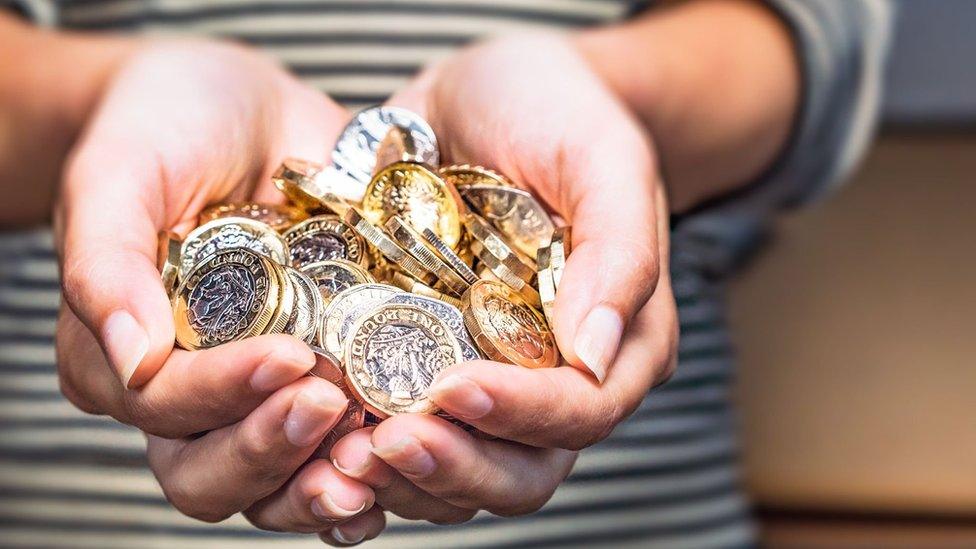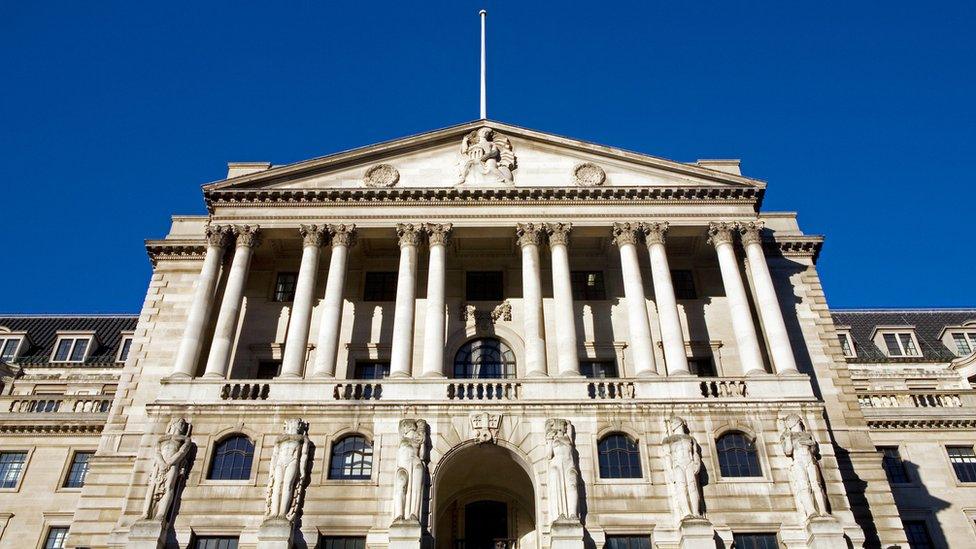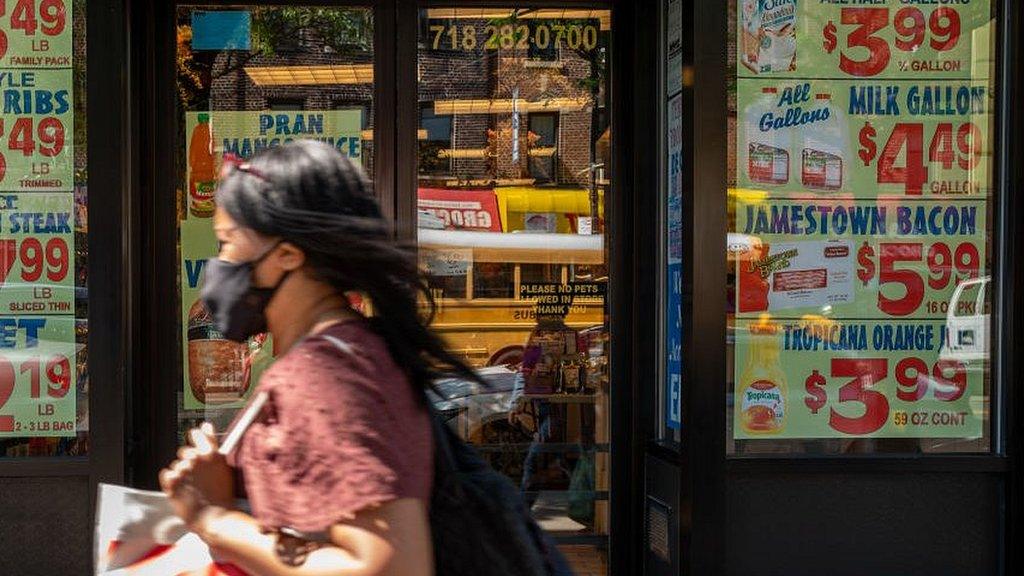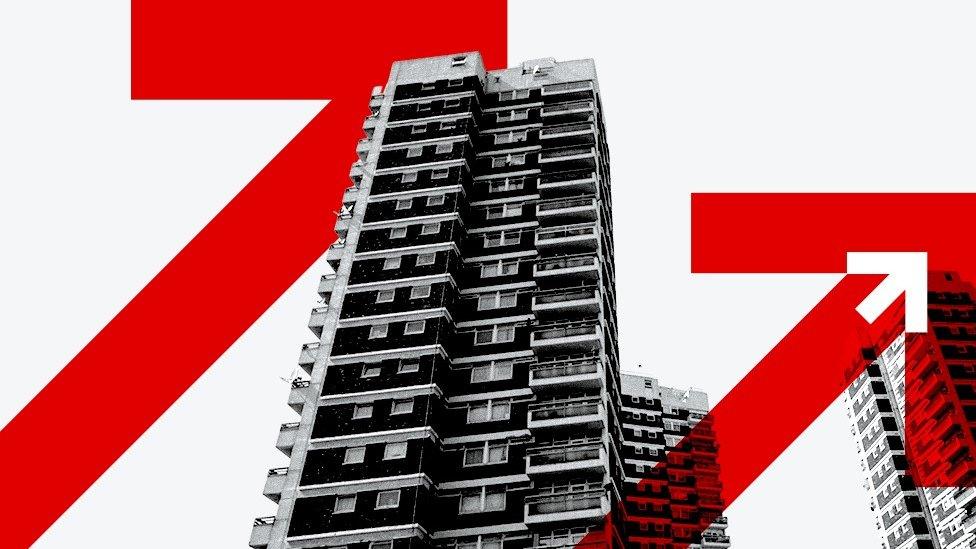Could the UK see interest rates rise to 5%?
- Published

Interest rates are heading upwards, with the Bank of England raising them to 2.25% on Thursday - their highest level since the 2008 financial crisis when the banking system faced collapse. At the same time the government is borrowing hundreds of billions of pounds to support the economy.
It is a classic response to so called "stagflation", which is when economic growth slows down but prices keep rising. By putting interest rates up, the central bank seeks to cool demand and therefore ease soaring price rises. At the same time, the government steps in to support households and businesses that are struggling to get by.
Thirty years ago they used to call it the "Ken & Eddie" show - a reference to the closely coordinated action taken by then Chancellor Kenneth Clarke and Bank of England Governor Eddie George. For the last three weeks, however, it's been the "Kwasi & Andy" show - with the new Chancellor Kwasi Kwarteng and current Governor Andrew Bailey meeting twice a week to thrash out their response to the crisis.
Concerns have been raised about the independence of the Bank of England under Liz Truss's government. But some degree of acting in concert is helpful. Earlier this month, for example, the Bank stepped in to offer a funding line for cash-strapped energy suppliers in what appears to be a Treasury-inspired idea.
Delicate balance
The relationship has become a little more complicated, though. How, for example, should Mr Bailey respond to the government's recent interventions on controlling the inflation rate, which is clearly the Bank's remit?
At times, cabinet ministers have gently suggested that perhaps rates might not have gone up quite as fast as they have done. The Bank meanwhile may decide that the government's massive borrowing-funded rescue package to limit energy bills for businesses and households could in fact stoke inflation, keeping it elevated for longer and justifying higher rates. It will require a delicate balancing act.

There are other challenges too. For example, the government now needs to borrow hundreds of billions of pounds more than previously expected to fund its plans. But it will not occur at a time when the Bank of England is buying up huge quantities of government debt to support the economy, as it did after the financial crisis and during Covid (in a process known as quantitative easing, or "QE").
Indeed, the Bank could be about to announce it is selling its government debts as part of the process of reversing QE. That would be a significant change.
Then there is the bigger picture. By raising rates to control inflation - which is currently 9.9% - the Bank is effectively putting the brakes on the economy at a time when the new government wants to boost economic growth to an annualised rate of 2.5%. The Bank's actions are also designed to cool the housing market, just as the government reportedly wants to stimulate demand with a stamp duty cut.
Rates over 5%?
The bigger question is how much higher the government really wants the Bank to raise interest rates, even as it respects its independence to do so.
In the US on Wednesday, the US central bank the Federal Reserve announced another jumbo rate rise, and more than that, its chair Jerome Powell signalled he would keep on raising rates and leave them at elevated levels until inflation falls to the bank's 2% target.
"We're committed to getting to a restrictive level for the Federal Funds rate [ie US base rates] and getting there pretty quickly… there's a way to go," said Mr Powell last night after the Fed announced its third three-quarters of a percentage point rise. The news further bolstered an already strong dollar, pushing the underperforming pound to a new 37 year-low of $1.12.
Expectations are that US interest rates will hit 4% or 5%, and they are rising here too.
Those sorts of levels in the UK are now far from unthinkable. And a prime minister who spent a leadership campaign urging the Bank of England to do more on inflation could see that wish granted, although perhaps not quite at the ideal moment.
Related topics
- Published21 September 2022

- Published21 September 2022


